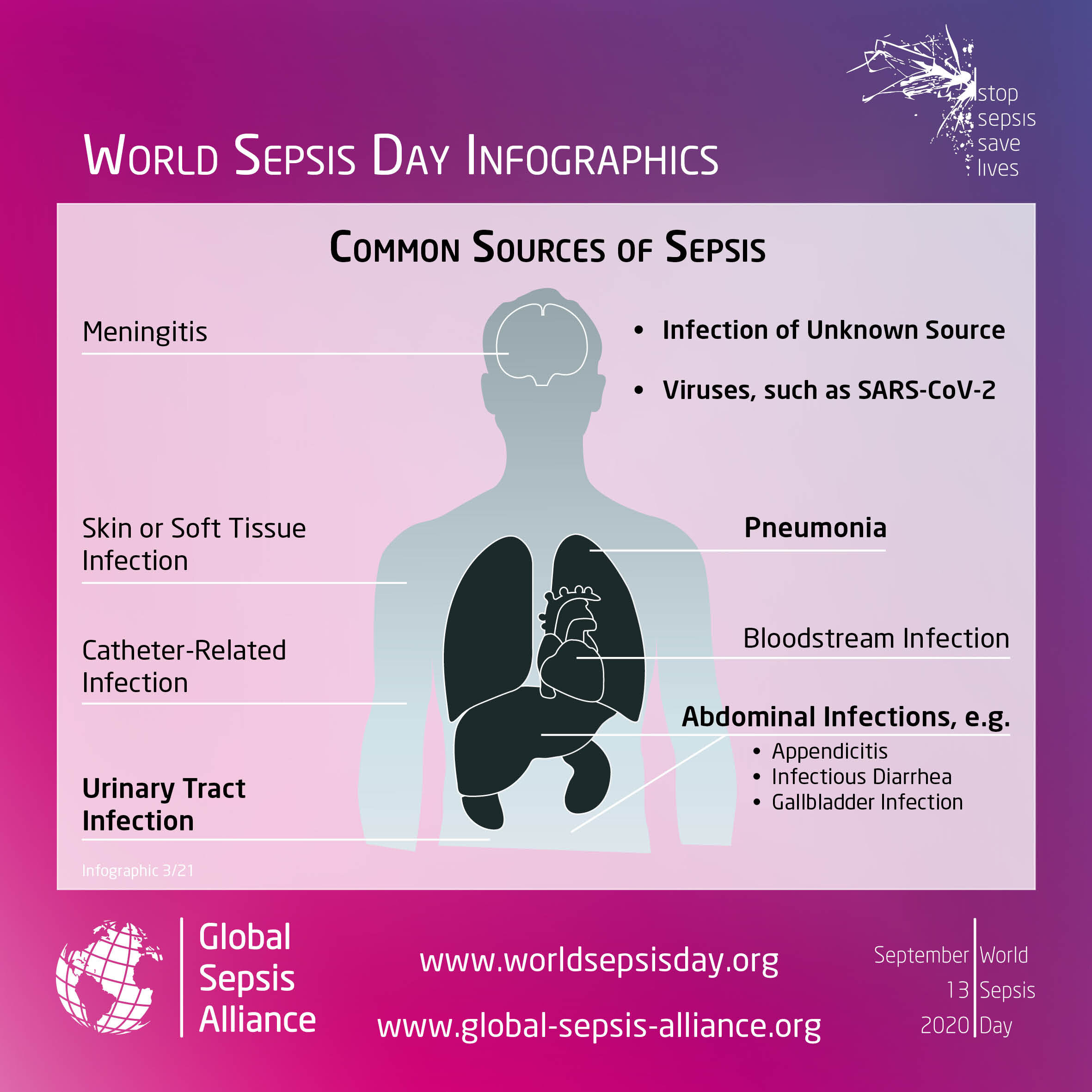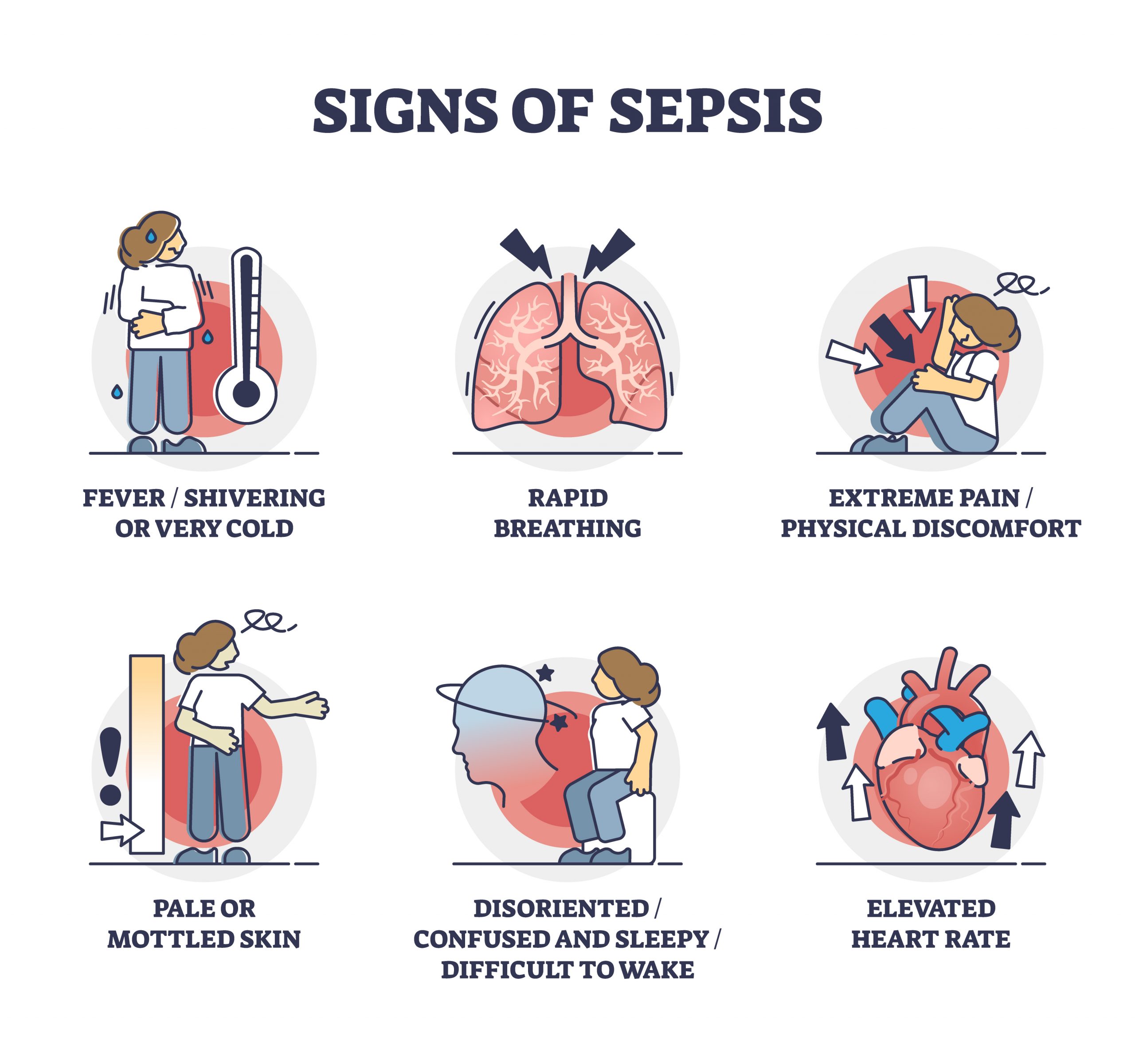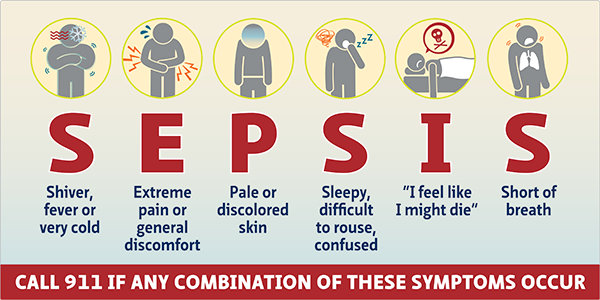· with support from who, the global sepsis alliance (gsa) hosted its annual world sepsis congress on 8–9 april 2025, continuing its mission to combat the global health threat of sepsis. Cette réaction immunitaire provoque des lésions tissulaires et organiques et peut entraîner un état de choc, une défaillance multiviscérale et parfois le décès, surtout si elle n’est pas détectée. · the world health organization’s first global report on sepsis finds that the effort to tackle millions of deaths and disabilities due to sepsis is hampered by serious gaps in knowledge, particularly in low- and middle-income countries. According to recent studies, sepsis kills 11 million people each year, many of them children. We aimed to study outcomes in the five years after severe sepsis. There may be difficulty … Its treatment requires medical care, including the use of antimicrobials, intravenous fluids and other measures. Estimates from 2017 suggest 48. 9 million cases of sepsis occur each year, with 11 million deaths. · sepsis is usually caused by bacterial infections but may be the result of other infections such as viruses, parasites or fungi. Many patients who survive sepsis suffer long-term … · le sepsis est une affection potentiellement mortelle qui survient lorsque le système immunitaire réagit de façon extrême à une infection, entraînant une dysfonction d’organe (4). · severe sepsis is associated with high levels of morbidity and mortality, placing a high burden on healthcare resources. It affects people worldwide, but has a particularly high burden in low- and middle-income countries where resources to treat it are more limited. · sepsis is the most common serious complication of infection. A septic infection may cause a fever, but may also cause low body temperature, cold extremities and shivering. But there’s an urgent need … Many people who survive sepsis suffer long-term … It may present different warning signs and symptoms at times, some of which may cause misidentification with other conditions. La sepsis es una afección grave que se produce cuando el sistema inmunitario del cuerpo responde de manera extrema a una infección, lesionando sus propios tejidos y órganos. Since its inception in 2016, this free online congress has become a vital platform for sharing knowledge and fostering collaborations among clinicians, scientists, policymakers and … · 重要事实 败血症是全世界最常见的死亡原因之一,但在人群层面收集可靠数据存在挑战 (1)。 根据2020年公布的数据,全球有4890万败血症病例和1100万败血症相关死亡病例,占全球死亡总数的20% (2)。 全球 估计 所有 败血症病例 中,近一半(2000万例)发生在五岁以下儿童中。 每1000名住院患者中,估计. Cualquiera puede sufrir una sepsis, pero el riesgo es mayor en las personas de edad, las muy jóvenes, las embarazadas o las que tienen problemas de salud. It disables millions more. · sepsis is a medical emergency and requires immediate attention to prevent further complications or death. This was a cohort study using data from a prospective audit in 26 adult icus in scotland.
Sepsis Gefahr: Warum Die S3 Sepsis Leitlinie So Wichtig Ist – Und Was Sie Tun Können!
· with support from who, the global sepsis alliance (gsa) hosted its annual world sepsis congress on 8–9 april 2025, continuing its mission to combat...




